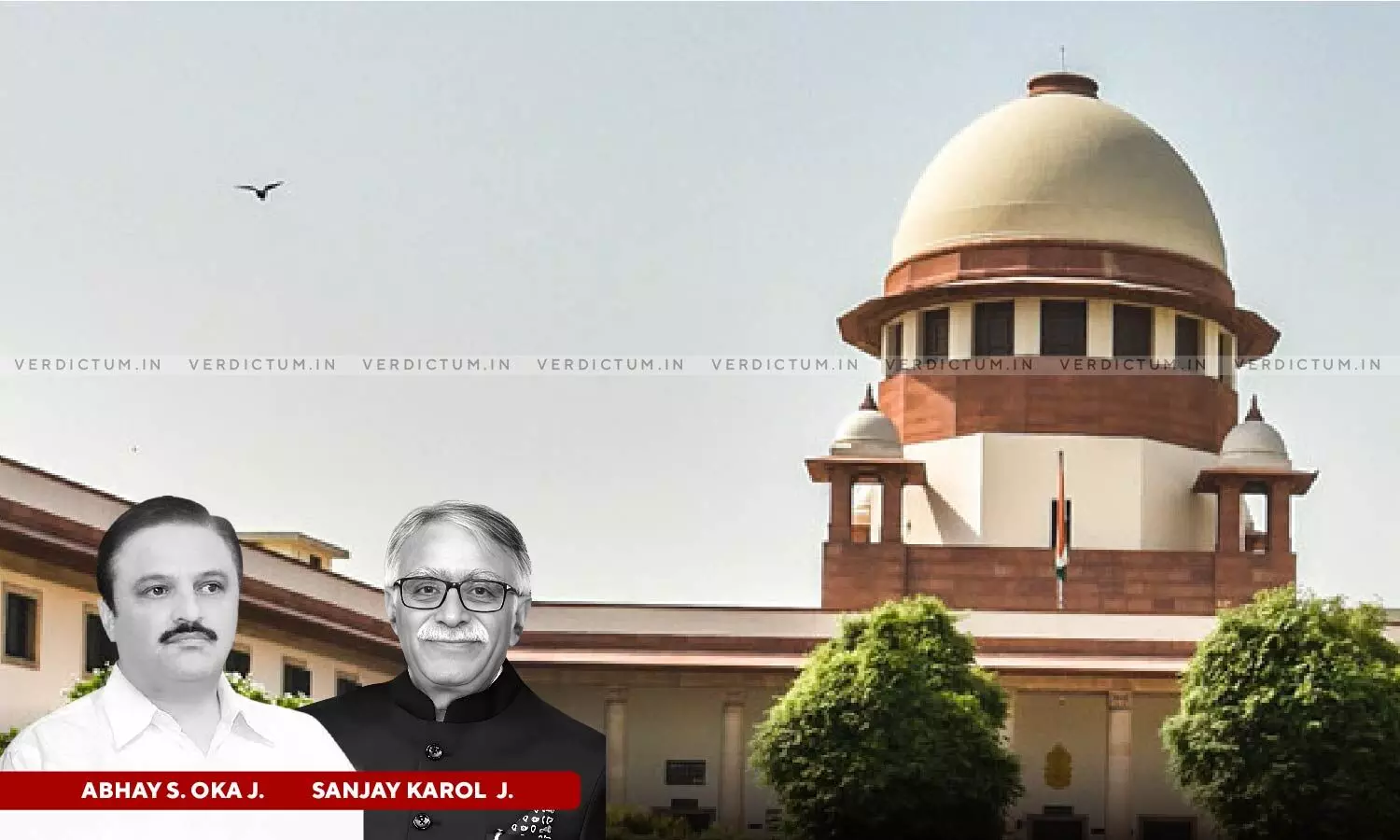
Abkari Act| Conviction Based On Police Testimony If Reliable & Trustworthy Cannot Be Questioned- SC Reaffirms
 |
|The Supreme Court has in a case under the Abkari Act reaffirmed that conviction based on police testimony cannot be questioned if it is reliable and trustworthy.
A two-judge Bench of Justice Abhay S. Oka and Justice Sanjay Karol observed-
“Conviction being based solely on the evidence of police officials is no longer an issue on which the jury is out. In other words, the law is well settled that if the evidence of such a police officer is found to be reliable, trustworthy then basing the conviction thereupon, cannot be questioned, and the same shall stand on firm ground.”
An appeal was filed by the accused-appellant, against the order passed by the Kerala High Court. In the appeal, he had sought to set aside his conviction under Section 8 of the Abkari Act. The High Court denied his request to overturn the conviction, and the decision of the Trial Court was upheld.
On 1st October 2003, the appellant was arrested for carrying five liters of Arrack in his autorickshaw, and the case was registered with the Judicial 1st Class Magistrate, Kunnamangalam. The case was later transferred to the Court of Additional District & Sessions Judge, Fast Track (Ad Hoc-11), Kozhikode. The Trial Court examined several witnesses, including Excise Inspectors and an independent witness, and returned findings in favor of his guilt based on the testimonies of the Excise Inspectors. He was sentenced to one year of imprisonment, a fine of one lakh rupees, and an additional six months of rigorous imprisonment in case of non-payment of the fine.
Advocate James P. Thomas (AOR) appeared for the Appellant and Advocate Harshad V. Hameed (AOR) appeared for the Respondent.
The issue dealt with by the Court was:
- Whether the conviction, solely on the basis of official witnesses was sustainable and whether the delay of nearly 3 years in filing the challan could be said to be materially affecting the correctness of the judgment of the lower court as also the judgment impugned.
The case revolved around the prohibition of the manufacture, sale, possession, and distribution of arrack, an alcoholic beverage, as specified in Section 8 of the Abkari Act. The appellant had challenged the conviction based on several grounds, including the absence of independent witnesses, interpolation in the records, unexplained delays, and the reliance on official witnesses for the prosecution.
The Apex Court considered these grounds, and it was argued that the conviction, solely based on the testimony of official witnesses (police officers), might not be sustainable. The Court referred to various legal precedents, including cases discussing the bias or prejudice in the investigation when the same person who detected the crime also conducted the investigation.
The Court reiterating the Supreme Court judgment of Mukesh Singh v. State (NCT of Delhi), (2020) 10 SCC 120 established that it can no longer be said to be res integra that the person receiving the information of the crime or detecting the occurrence thereof, can investigate the same. The Court emphasized that the issue of bias should be evaluated based on the specific facts and circumstances of each case.
“In the present instance, nothing has been put forward to show that there may be a reasonable ground for the presence of bias or that there may be “a real danger of bias” and therefore the bald plea of the investigation not been fair, judicious does not support the case of the Appellant.”
Ultimately, the Court found that the testimony of the police witnesses (official witnesses) could be relied upon if it was reliable and trustworthy, and the absence of independent witnesses alone did not invalidate the conviction relying on Pramod Kumar v. State (Govt. of NCT of Delhi), (2013) 6 SCC 588.
The Court also addressed the issue of delay in the investigation and the submission of the final report. Although the delay was noted, the Court determined that it did not result in prejudice in this case, particularly since the accused was not in custody during the period of delay.
The Court modified the sentence thereby reducing the period of imprisonment to three months and extending the time for the appellant to pay the fine.
Cause Title: Sathyan v. State of Kerala
Click here to read/download Judgment